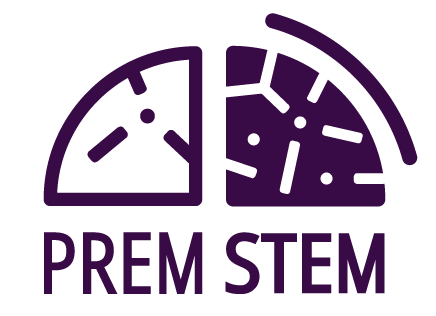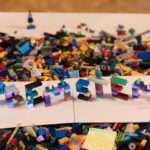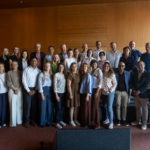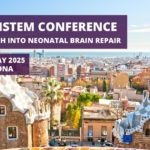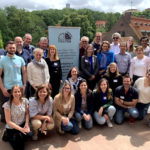It’s been another busy year for the PREMSTEM team in which we also had our first project review meeting with European Commission representatives and external reviewers. We received positive feedback and comments related to how the project is progressing. To wrap things up for 2023, I’m happy to provide a short summary of some of our key activities.
Scientific progress
In the fourth year of the project we’ve made great strides in our scientific work and continue to see interesting results as we continue to investigate the potential of using stem cells from umbilical cord tissue to treat brain injury related to preterm birth.
The Maastricht University team is tracking where stem cells end up in the small animal model by labelling them with gold nanoparticles. They are also tracking mitochondria to see how long stem cells survive. Analysis of the effectiveness of the stem cell treatment will be undertaken by the team at RMIT University in Melbourne, examining tissues from the large animal studies carried out in Maastricht.
The University of Geneva is using MRI to analyse the brain of animals from the infection model studied in Maastricht. The Geneva team is analysing the long-term efficacy of the stem cell treatment with interesting findings seen so far in the basal ganglia (grey matter) and internal capsule (white matter).
Experiments carried out by the team at UMCU show that exposure to stem cells stimulates neuron differentiation and the formation of more complex networks. In their creatine preloading experiments, they have seen increased stem cell energy production (basal mitochondrial respiration).
The Iconeus team has created a new 4D probe and is working on improving functional interconnectivity mapping to make this technology plug and play. This kind of probe will be useful for clinicians making observations at the bedside, meaning less disruption for patients.
2023 peer-reviewed publications
| Umbilical cord-mesenchymal stem cells induce a memory phenotype in CD4+ T cells Frontiers in Immunology | Author(s): Ezgi Sengun, Tim G. A. M. Wolfs, Valéry L. E. van Bruggen, Bram van Cranenbroek, Elles R. Simonetti, Daan Ophelders, Marien I. de Jonge, Irma Joosten and Renate G. van der Molen |
| Advances in neonatal cell therapies: Proceedings of the First Neonatal Cell Therapies Symposium (2022) Pediatric Research | Author(s): Atul Malhotra, Bernard Thebaud, Madison C. B. Paton, Bobbi Fleiss, Paris Papagianis, Elizabeth Baker, Laura Bennet, Tamara Yawno, Ngaire Elwood, Belinda Campbell, Kirat Chand, Lindsay Zhou, Tayla Penny, Timothy Nguyen, Salvatore Pepe, Alistair J. Gunn and Courtney A. McDonald |
| Preterm Birth by Cesarean Section: The Gut-Brain Axis, a Key Regulator of Brain Development Developmental Neuroscience | Author(s): Cécile Morin, Cindy Bokobza, Bobbi Fleiss, Elisa L. Hill-Yardin, Juliette Van Steenwinckel and Pierre Gressens |
High sensitivity mapping of brain-wide functional networks in awake mice using simultaneous multi-slice fUS imaging Imaging Neuroscience | Author(s): Adrien Bertolo, Jeremy Ferrier, Silvia Cazzanelli, Samuel Diebolt, Mickael Tanter, Sophie Pezet, Mathieu Pernot, Bruno-Félix Osmanski and Thomas Deffieux |
| Key roles of glial cells in the encephalopathy of prematurity Glia | Author(s): Juliette Van Steenwinckel, Cindy Bokobza, Mireille Laforge, Isabelle K. Shearer, Veronique E. Miron, Rejane Rua, Samantha M. Matta, Elisa L. Hill-Yardin, Bobbi Fleiss and Pierre Gressens |
| Hypothermia combined with extracellular vesicles from clonally expanded immortalized mesenchymal stromal cells improves neurodevelopmental impairment in neonatal hypoxic-ischemic brain injury Journal of Neuroinflammation | Author(s): Nicole Labusek, Parnian Ghari, Yanis Mouloud, Christian Köster, Eva Diesterbeck, Martin Hadamitzky, Ursula Felderhoff-Müser, Ivo Bendix, Bernd Giebel and Josephine Herz |
See full list of PREMSTEM-affiliated publications.
Annual meeting
Over 20 members of the consortium headed to The Netherlands in September for the PREMSTEM annual meeting, hosted by our colleagues at the University of Maastricht. We were joined by other members of the research team and our advisory boards online for a full day of project updates and discussion. We also held a session especially for our PhD and postdocs to present an aspect of their research to their peers, providing an opportunity to get feedback and learn more about each other’s work. Next year’s annual meeting will be held in June at the University of Gothenburg.
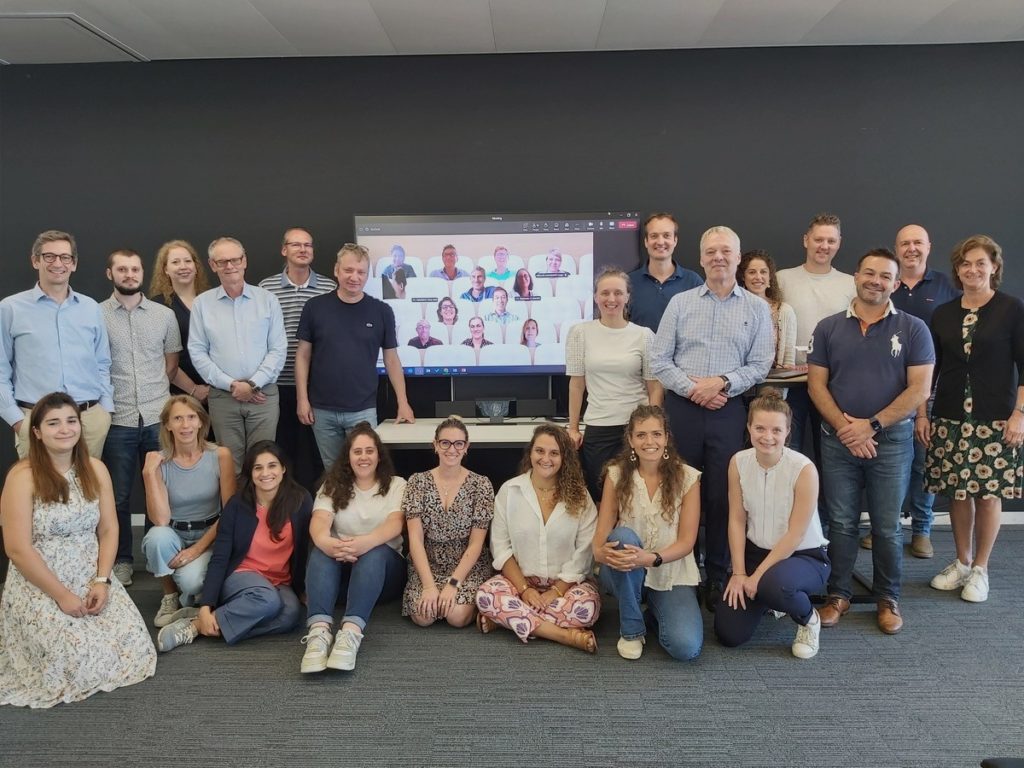
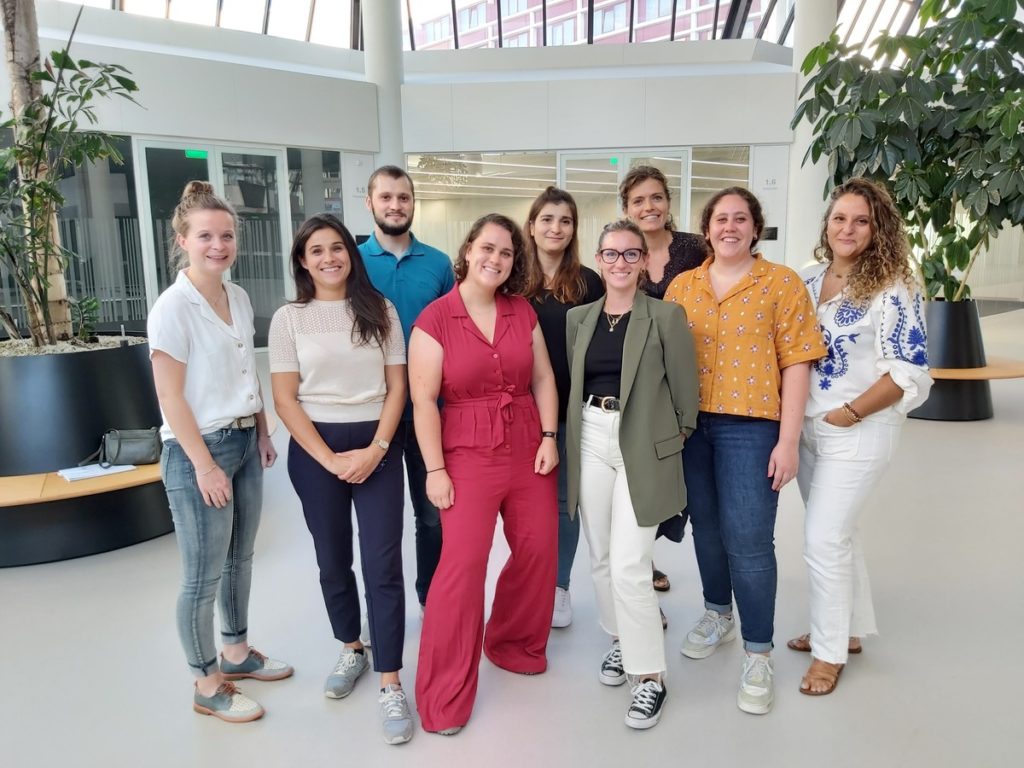
Science dissemination
Many members of the PREMSTEM team have presented results from the project and related research at different conferences and workshops around the world this year. Here are some of the highlights:
Representatives from PREMSTEM partners RMIT and Chiesi attended the Perinatal Society of Australia and New Zealand (PSANZ) 2023 Congress in Melbourne with Bobbi Fleiss presenting ‘Neonatal and adult microglia respond differently to common immune challenges dependent on sex’. Understanding microglial responses to brain injury is key to developing therapies for perinatal brain injury.
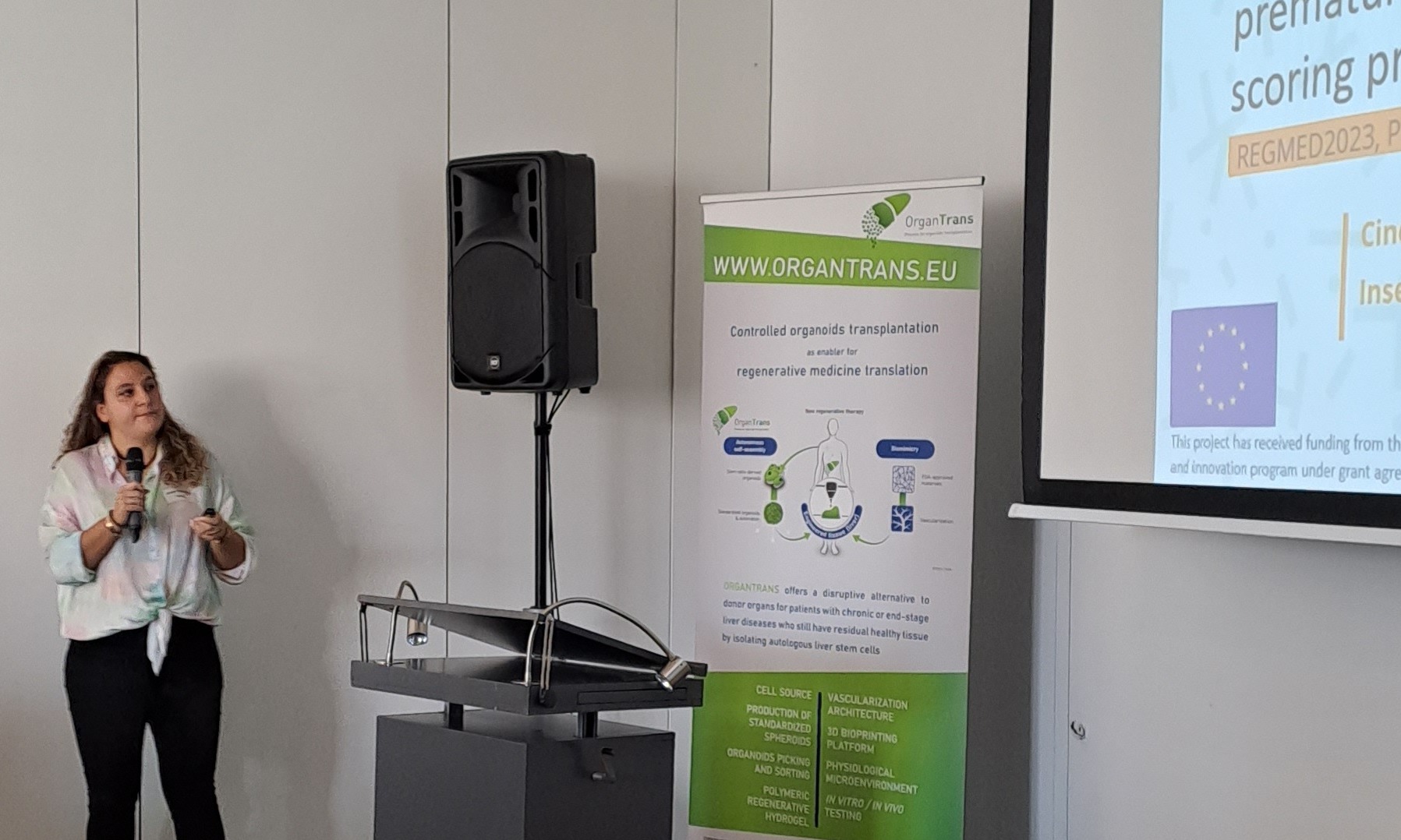
Cindy Bokobza from the INSERM U1141 team headed to Prague to represent PREMSTEM at the 3rd Regenerative Workshop: From Idea to Patient which was organised in the framework of OrganTrans, one of our sister projects. Cindy’s presentation ‘Therapeutic evaluation of human mesenchymal stromal cells in a rat model of encephalopathy of prematurity: a systematic outcome scoring protocol’ described findings from experiments testing different doses, routes and timing of stem cells from donated umbilical cord tissue in different models of brain injury to determine the best options for repair.
I presented PREMSTEM in my talk ‘Stem Cells for Preterm Brain Injury’ at the 49th Annual Meeting of the Society for Neonatology and Pediatric Intensive Care Medicine (GNPI) in Hamburg, a session chaired by our Universitätsmedizin Essen colleagues Ursula Felderhoff-Müser and Ivo Bendix.
Marta Tiffany Lombardo presented her poster ‘Human umbilical cord-derived mesenchymal stem cells (H-MSCs) as a strategy to limit neuroinflammation in an in vitro model of encephalopathy of prematurity’ at the 2023 European Glial Meeting in Berlin. Marta is a PhD candidate at Consiglio Nazionale delle Ricerche where the research team is investigating how H-MSCs direct microglia toward pro-regenerative functions and impact the crosstalk of microglia with oligodendrocytes.
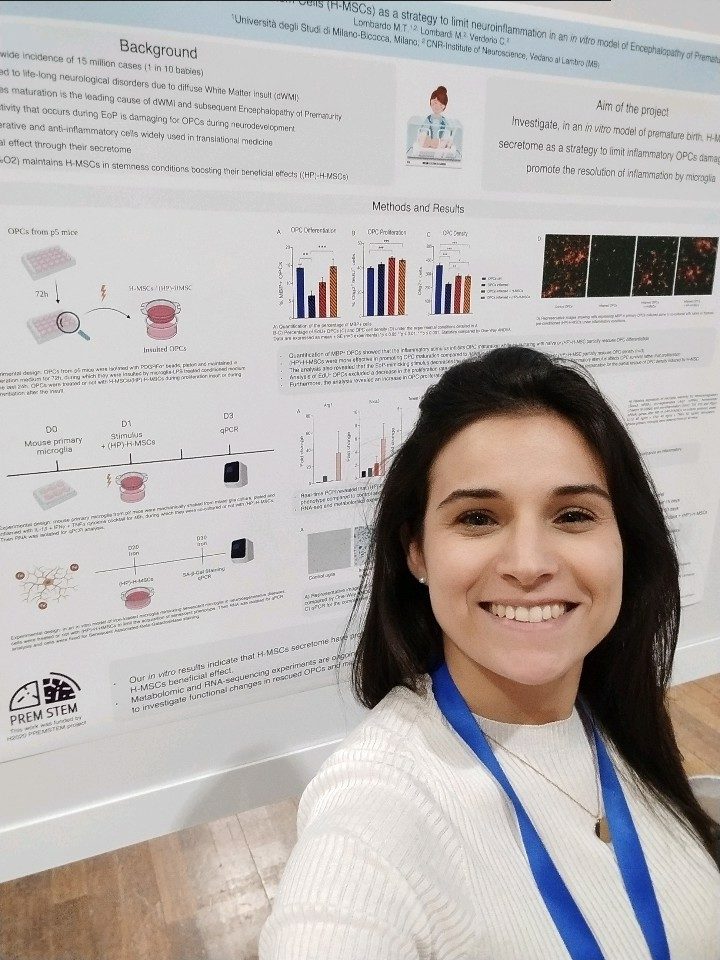
Several members of the PREMSTEM consortium went to Cambridge for European Neonatal Brain Club. Henrik Hagberg from University of Gothenburg presented data on a new neurotherapeutic medicine. I talked about the ‘Impact of C-section on neonatal inflammation in a mouse model of EoP’ summarising that C-sections cause significant changes in the microbiome which might have implications for later life development. Bobbi Fleiss from RMIT summarised that in the future, the way we treat infants will be based on their sex as well as their stage of development in her presentation ‘The importance of sex and age in the immune responses of microglia’. Juliette Van Steenwinckel from INSERM U1141 presented a masterclass on subsets of microglia and how understanding each subset might be necessary for effectively treating brain injury in babies.
I attended the 5th Congress of joint European Neonatal Societies in Rome alongside Manon Benders from UMCU, Bobbi Fleiss from RMIT, Luc Zimmermann from EFCNI, and Meray Serdar and Ivo Bendix from Universitätsmedizin Essen. The jENS congress focuses on advancements in neonatology, bringing together over 2,000 members of the neonatal community.
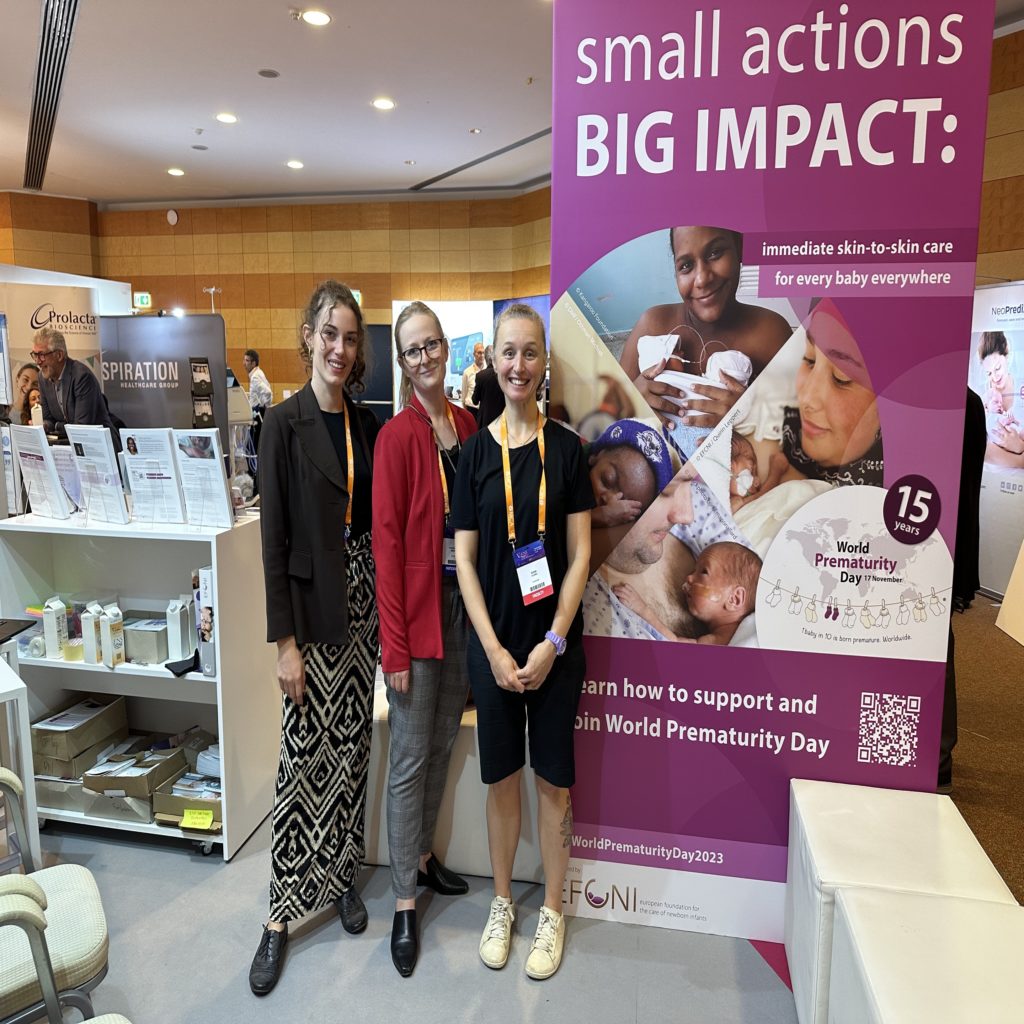
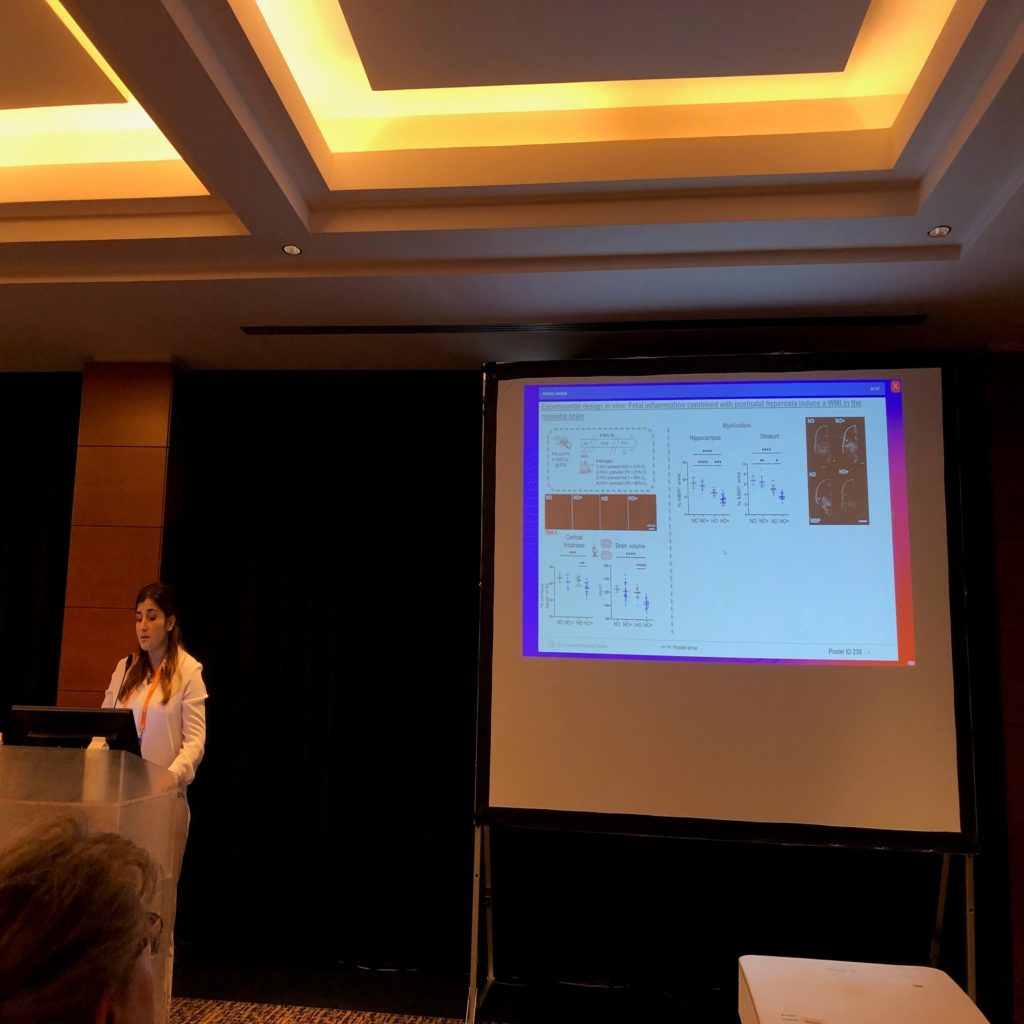
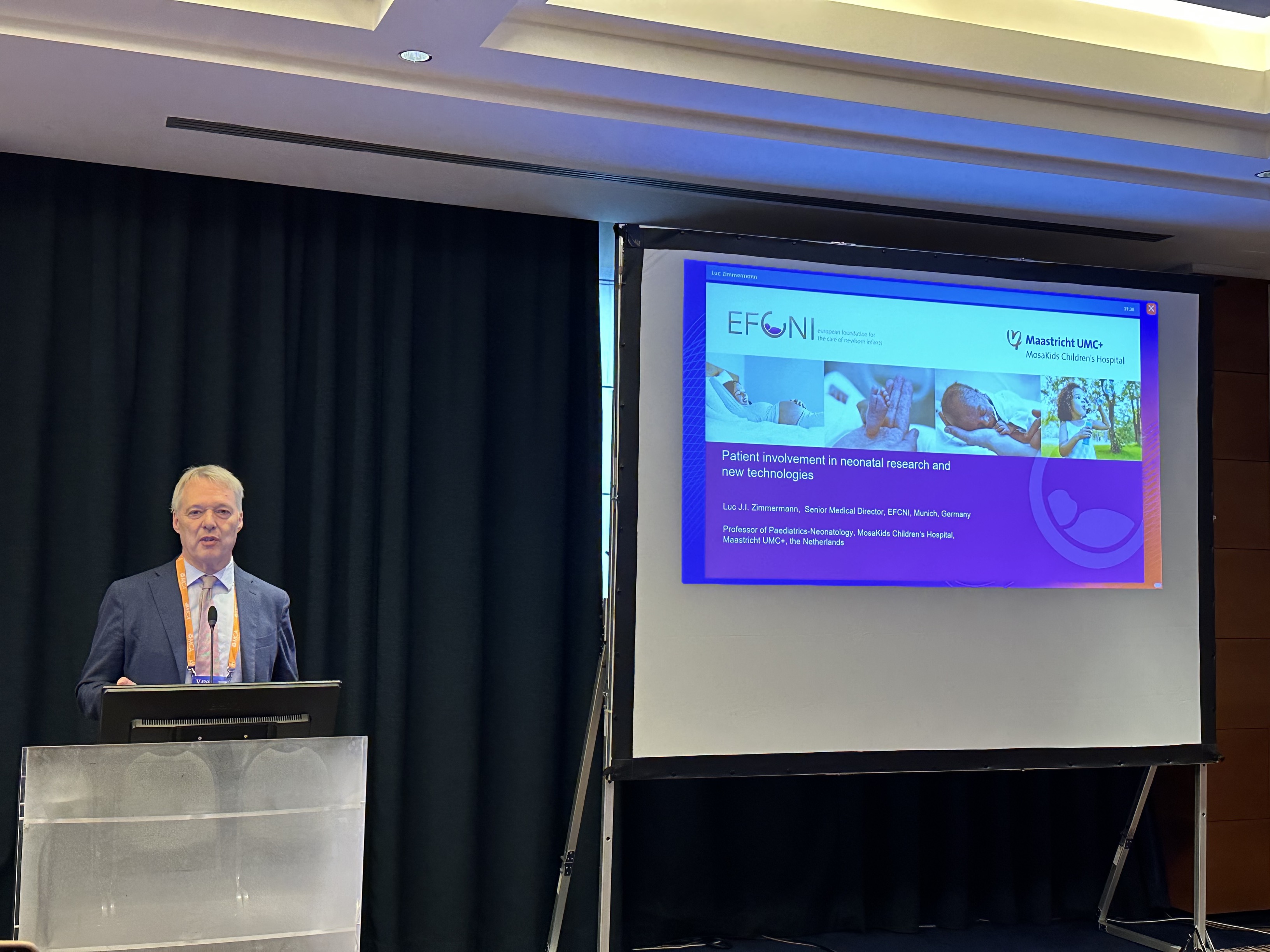
Henrik Hagberg from University of Gothenburg went to Oslo to present PREMSTEM at the Nordic Neonatal Meeting. It was an excellent session with Deirdre Murray, Nikki Robertson and Henrik focusing on both hypoxic-ischemic encephalopathy (injury caused by a lack of blood flow and oxygen to the brain) and encephalopathy of prematurity (brain injury related to being born preterm).
Engaging our stakeholders through co-creation
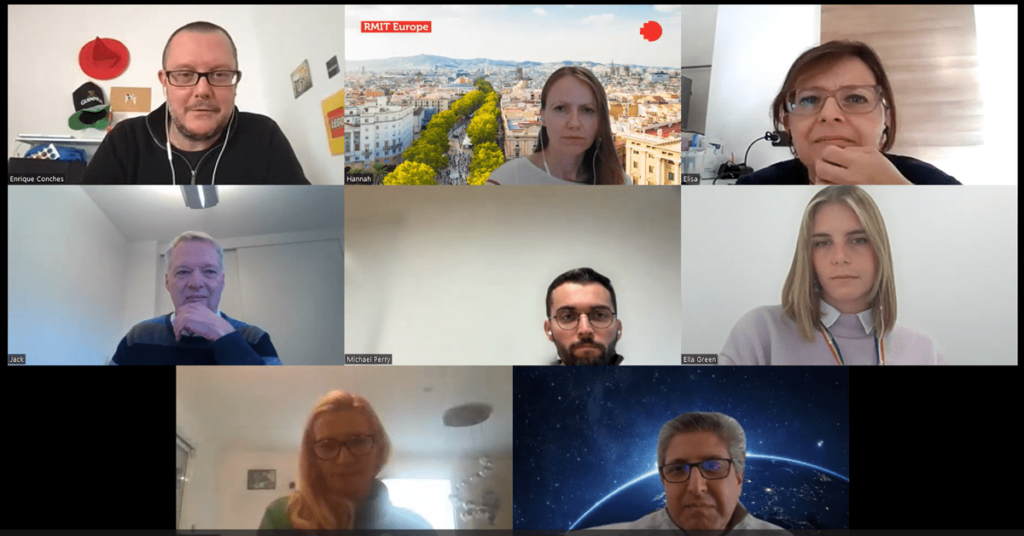
This year RMIT Europe organised 16 one-on-one interviews with parents, neonatologists, nurses and adults who were born preterm as well as one media professional as part of the project’s co-creation activities. These were followed by three co-creation workshops attended by parents of preterm children, representatives of advocacy groups, health professionals and researchers. We’ll conclude our co-creation activities in early 2024. Find out about the activities so far on our co-creation webpage.
Communicating our research
I encourage you to follow PREMSTEM on social media for the latest updates about the project and keep an eye on our website where we add new information and host different resources, including translations of fact sheets. We also have a YouTube channel where you see our project video, stem cell animation and many short videos.
You can find an overview of our communication and dissemination activities which took place between January 2020 and April 2023 in our public deliverable, Interim report on content elements. To learn more about PREMSTEM, you can also hear from our project manager Estelle Drobac in an interview (in French) with La Cellule Europe de l’Inserm.
Awards, nominations, other personal successes
Cora Nijboer from UMCU became a Vici laureate this year, Vici being one of the largest scientific grants for individuals in the Netherlands. Cora’s project is called ‘NEOREPAIR: unravelling the cellular and molecular mechanisms of mesenchymal stem cell-driven repair in the injured newborn brain’. NEOREPAIR will use state-of-the-art techniques to investigate how stem cells boost the formation of new neurons and network repair in the injured brain and how stem cell therapy can be optimised.
Mary Tolcos and Bobbi Fleiss from RMIT were awarded AU$536,125 by the Australian Research Council for their Discovery Project ‘The capacity for exceptional brain repair in a novel rodent species’ which aims to provide a new living tool for studying brain injury and repair. The project expects to generate new evidence of effective brain repair in a mammalian species, the spiny mouse. It will provide important knowledge of the cellular responses that coordinate to allow mammalian brain repair, revealing targets for future understanding and treatment.
Mickaël Tanter was named the Ambassador’s Chair Kulak 2023 and carried out a series of public lectures related to biomedical ultrasound. The Ambassador’s Chair is granted to an internationally leading academic whose research is thematically linked to KU Leuven Kulak.
Renate van der Molen from Radboudumc received a 3-year research grant from LEO Foundation/LEO Fondet for research into the use of biologicals and whether they can be safely used during pregnancy by psoriasis patients. The researchers hope to improve care for women with psoriasis and a pregnancy wish.
And finally
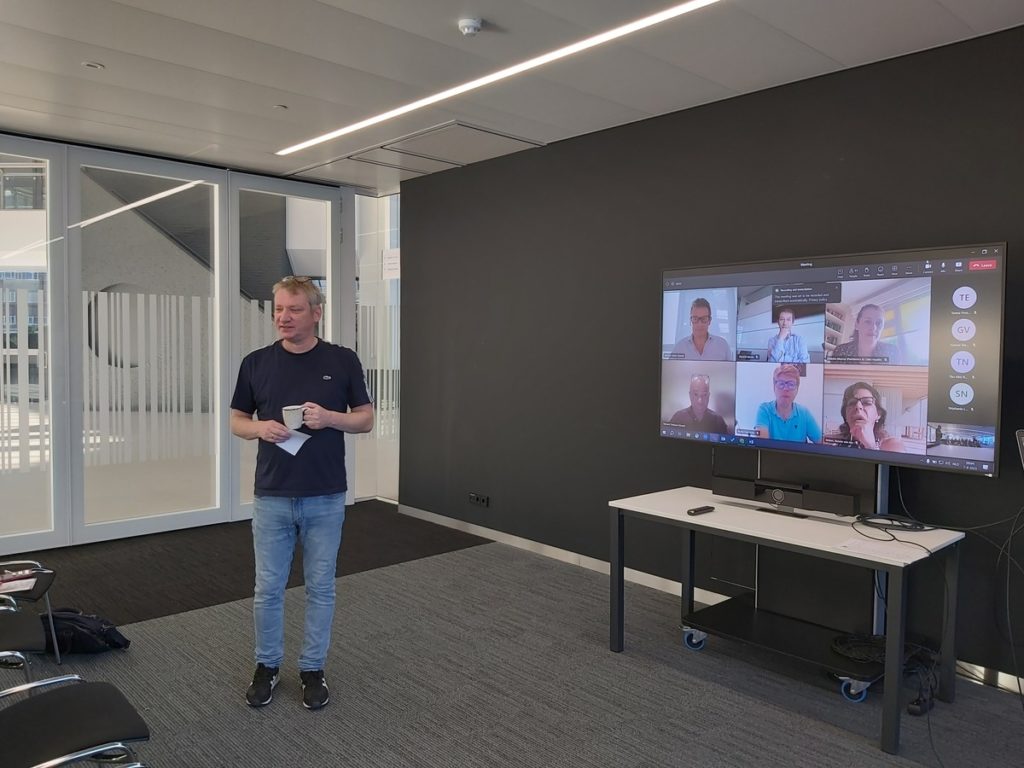
To finish, I’d like to thank the whole PREMSTEM team, our six Patient Consumer Advisors, the members of our ethics and innovation management advisory boards, our co-creation interviewees and workshop participants as well as all others who take an interest in the project.
We look forward to continuing our important work in the coming year and sharing more results with you.
Pierre Gressens
Project Coordinator
Inserm
